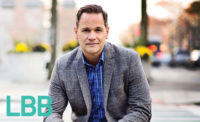How A Woman's Intuition Changed An Industry










When it comes to rodents, and insects, kindness is not a word traditional pest control brands have used as part of a brand name or product description. It took a woman to replace the notion of “kill” with the concept of kindness to disrupt an industry. Kari Warberg Block, founder and CEO of EarthKind, Inc., instinctively figured out what the entire pest control industry missed when she developed her first all-natural deterrent at her kitchen table.
The daughter of an entomologist and wife of a farmer, Warberg Block began her business, like many women do, out of necessity and anger. She and her husband were struggling financially and watching every penny. She knew she had to protect the family farm and its equipment from the costly damage caused by mice, but as a mother she was concerned about using a pest control product full of toxins. In a fit of frustration, Warberg Block grabbed a bottle of perfume and began spraying to see if that would get the mice out of a farm vehicle. It was a pivotal moment that got her questioning everything: Why lure mice in to kill them? Why not keep them out to begin with? Why not make pest control that’s non-toxic? Why not make it 100 percent sustainable? Why not make it less intimidating to buy? Why not market it to women?
Those questions were eventually answered in the form of her first product, Fresh Cab—the first botanical rodent repellent to be safe enough for household use, yet effective enough for professional use.
“Nobody seemed to care enough about how moms, kids and pets are affected by the traditional ‘poison and kill’ pest control methods,” she says. “I felt very strongly that this status-quo needed to change, and I had the idea and passion to do it.”
Getting EPA (Environmental Protection Agency) approval can cost a company as much as $2 million. It took Warberg Block four years and $200,000 to launch EarthKind with EPA approval. Some of the money came from grants, and the rest came from sacrifice. She had to sell her horse, camper and even her house. It was a difficult decision but ultimately worth it. By 2016, she expanded her product line to include Stay Away, a non-toxic pest deterrent for home use. At the time, 98 percent of pest control products available to consumers were kill method. The other 2 percent of products use high frequency or ultrasonic sound waves to repel unwanted rodents.
The time was right for a third option. Pest control products have a high walk away rate at retail, and consumers—especially women and millennials—overwhelmingly prefer using a natural pest deterrent instead of kill methods. The absence of the word “dead” combined with the packaging’s clean design void of primary colors made Earthkind less intimidating and more inviting to the world’s most powerful consumers—women. According to the Harvard Business Review, women drive the global economy by controlling $20 trillion in annual consumer spending. That number is projected to reach $28 trillion in the next five years. Women are not only powerful consumers, they are ideal brand owners.
Kevin O’Leary, entrepreneur, investor and star of ABC’s “Shark Tank,” agrees that women are the ideal brand owners. “I’ve been investing now for over 10 years on things like ‘Shark Tank’ deals—and other deals that are brought to me because of ‘Shark Tank’—and the majority of my returns come from the companies run by women,” O’Leary tells CNBC of his portfolio. “Now this isn’t some kind of academic research, this is real data. This is real money coming back to me.” He says women, especially mothers, are natural multi-taskers, have exceptional listening skills—especially when it comes to critical feedback—and set more realistic goals than men.
If that’s true, then why aren’t more women starting and leading more businesses? According to a 2018 American Express “State of Women Owned Businesses” report, the growth in women-owned businesses has been uneven. Throughout the course of nearly half a century, women have gone from owning 4.6 percent to 40 percent of all businesses. However, these businesses account for only 8 percent of all employment and 4.3 percent of total revenues. Given the outsized contributions of million dollar-plus businesses, focused efforts on graduating more women-owned businesses from the $100,000 to $999,999 category into the million-dollar-plus category will yield big economic gains.
The EY Entrepreneurial Winning Women program was established to do just that. The national competition and education program identifies a select group of women entrepreneurs whose businesses show real potential to scale—and then helps them do it. In 2012, Warberg Block was selected as an EY Entrepreneurial Winning Woman, and the experience left a profound impact on her both professionally and personally. “There are not enough visible value-based leaders. It’s so important to support businesses that don’t put profits before family, society or the environment,” she says.
Warberg Block refers to this way of doing business as “conscious capitalism.” To her it meant personally shifting her focus from her own personal problems and wants to helping others. She says, “Everything changed after I began focusing on others.” That meant embracing 100 percent transparency in every business transaction—even if it risked losing hard-to-get retail partnerships and trusted relationships. This was especially challenging when she had a feeling that a supplier wasn’t on the up-and-up. The supplier was vetted and she was assured everything was fine, but she did some digging and discovered the supplier was using cheaper filler ingredients in her products. The ingredients being used were not harmful but they were not what she promised her retailers and consumers. The decision was made to let the retailers know and the product was pulled. This type of transparency doesn’t always translate to profits but it is what consumers expect from brands. The recovery was swift in large part because people don’t expect brands to be perfect, but they do expect them to be honest.
Empathy—typically viewed as a feminine trait—is another important aspect of conscious capitalism. Part of being an empathic company involves internalizing consumers’ needs and preferences throughout the organization while consciously adopting the customers’ point of view. Empathetic brands exercise better customer intuition than their competitors—they simply “get” their customer base and use this as a source of competitive advantage. Warberg Block’s idea to offer a natural alternative in the pest control market resonated with consumers before the rest of the sector caught on. A recent Mintel Group report found that 61 percent of pest control users polled prefer to use natural, non-chemical alternatives. As a result, more alternative brands have entered the market and more retailers are stocking those brands.
For Warberg Block, empathy goes beyond the consumer. “I have always had the intention, and still do, to build a new kind of company. I truly believe that business can solve some of our most pressing social problems and be a force of good in the world,” she says. One way to do that was to keep EarthKind an American-made brand and to source from family farms while manufacturing stateside to retain a low carbon footprint. When bigger chains began suggesting she manufacture in China to get the price down, she refused, saying, “There’s a point where low pricing just erodes the value of the brand and the mission of the company.”
Another way businesses can practice conscious capitalism is to hire people who are typically ignored. Warberg Block says, “When I discovered that there was 80 percent unemployment within the handicapped population, I considered this workforce as a viable option for open positions.” Today, approximately 20 percent of her employees has a disability. “We provide those employees with fulfilling long-term jobs that focus on their abilities.”
Looking for a reprint of this article?
From high-res PDFs to custom plaques, order your copy today!











